You’ve been eating right. Exercising regularly. Drinking water and even taking your vitamins.
Why the hell, then, is your stomach so bloated all the time?
Why do you look three months pregnant if you don’t suck your stomach in?
Why does eating make it look like you’re carrying twins?
Why does your skin feel like a waterlogged sponge?
If any of these questions have been echoing around in your head, I understand. Bloating is incredibly frustrating because it seems to come and go without rhyme or reason. It follows you like a curse.
Fortunately, though, it’s not hard to banish…for good. And this article is going to break it all down for you.
So, if you’re sick of “flat belly tips” and other nonsensical non-solutions for stomach bloating, and all forms of bloating, really, keep reading.
Want to listen to more stuff like this? Check out my podcast!
What Causes Bloating?
That swollen, puffy belly that you hate so much is usually caused by one of four things:
Too Much Fat
What many people think is loose skin is just body fat and the same goes for bloating.
In fact, in my experience working with thousands of people, I’ve found that when people are complaining about chronic bloating, the real issue is too much body fat.
(And if you’d like specific advice about how many calories, how much of each macronutrient, and which foods you should eat to lose body fat quickly, take the Legion Diet Quiz.)
Fortunately, it’s not hard to tell the difference between belly bloating and belly fat.
Bloating comes and goes.
You might wake up with a flat stomach and be carrying a three-pound food baby by the time you go to bed.
Belly fat, on the other hand, doesn’t fluctuate this markedly unless you dramatically over- or undereat.
If you were to measure your waist at the navel every morning and night, you’d see this clearly. If the culprit is bloating, readings would vary widely. If belly fat is to blame, however, readings would be consistent.
You can’t grab bloat by the handful.
Your skin will usually feel thicker but bloat doesn’t jiggle–fat does.
If you determine that your problem is indeed belly fat and not bloat, check out this article for the solution.
Lactose Intolerance
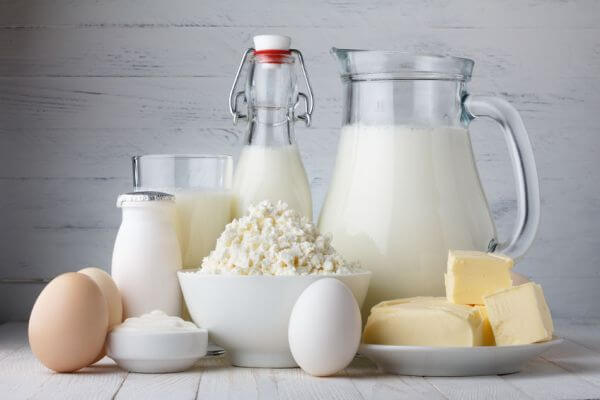
Research shows that approximately 70% of the world’s population can’t properly digest lactose, which is the sugar contained in dairy.
The reason for this is the intestines fail to produce enough of an enzyme called lactase, which is required to fully digest lactose.
The undigested lactose passes through the small intestine unabsorbed and when it lands in the large intestine, bacteria eat it and produce gas as a byproduct.
This expansion in the large intestine creates the swollen, bloated stomach, and diarrhea is common as well.
Irritable Bowel Syndrome or IBS-Like Symptoms

IBS symptoms include abdominal pain, cramping, constipation, bloating, and diarrhea.
The cause causes of IBS are unclear, but triggers can be avoided.
For example, research shows that some people don’t digest certain types of carbohydrates well.
These carbohydrates are known as FODMAPs, or Fermentable Oligo-, Di-, Mono-saccharides And Polyols, and in some people they can cause IBS-like symptoms, including bloating.
(In fact, what many people think is a gluten sensitivity is actually a FODMAP sensitivity.)
Examples of foods that contain FODMAPs are grains like wheat, barley, and rye, beans, dairy, and quite a few fruits and vegetables.
The problem with FODMAPs is similar to the problem with lactose–the molecules pass into the large intestine undigested, where bacteria ferment them, resulting in gas and bloating.
Sodium and Potassium Imbalance
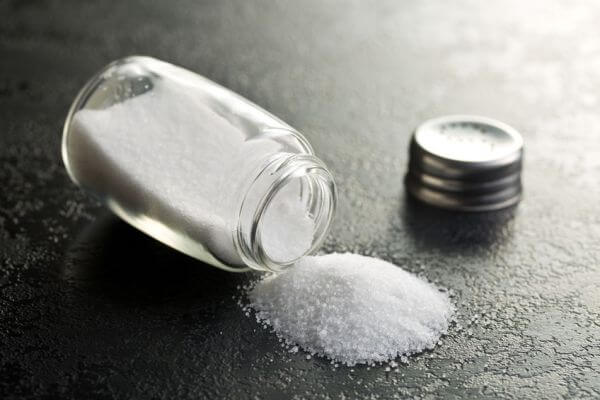
If you increase your sodium intake above the norm, your body will hold onto more water, and you’ll see this most clearly in the water directly under your skin.
A relatively slight increase in subcutaneous water makes your skin look noticeably softer and thicker.
What many people don’t realize is how easy it is to skyrocket your sodium intake and cause problems with bloating.
A mere teaspoon of table salt contains about 2.3 grams of sodium (which is the upper daily limit recommended by the Institute of Medicine), and all it takes is a couple additional teaspoons over your normal intake to noticeably increase bloating.
This is why you often wake up bloated after a “cheat meal” at your favorite restaurant. One of the rules of good cooking is most dishes should be salted as much as possible to bring out the flavors.
Many people’s sodium intake is all over the place on a day-to-day basis, and in these cases, simply leveling it out is all that’s needed to get rid of the bloating problems. (We’ll talk more about this in a minute.)
Hormonal Disturbances

Hormones are the health scapegoat du jour.
You gained weight?
Don’t listen to those mean bullies accusing you of overeating. It’s your hormones and it’s not your fault!
You can’t lose weight?
You probably just have a slow metabolism, which is caused by evil hormones conspiring against you.
You can’t stop giving into your food cravings?
Willpower has nothing to do with it. The real culprit? You guessed it.
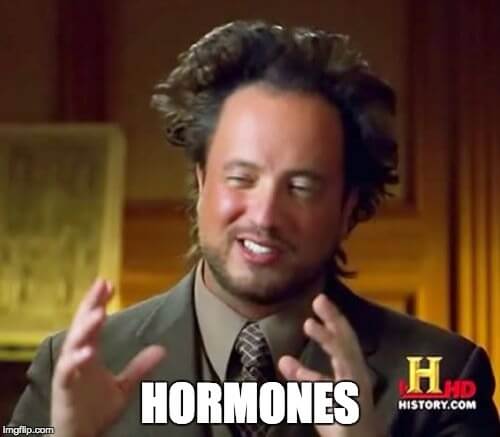
Quacks love to talk about hormones because a little pseudoscientific rambling is all it takes to convince people to buy whatever they’re selling.
So when someone claims that hormones are behind an unwanted body condition, you should get really skeptical really fast.
The reality is if you’re struggling with common problems like stagnant weight loss, slow muscle growth, unsightly belly fat, your hormones are probably fine. You just need to learn and apply the fundamentals.
When it comes to bloating and water retention, however, hormones can have a marked effect.
The best demonstration of this that I know of is an experiment conducted during World War II that would never pass an ethics board today.
Led by Dr. Ancel Keys, it was known as the “Minnesota Starvation Experiment” and its purpose was to study the physical and psychological effects of starvation and create an effective regimen for helping starved POWs resume normal eating patterns and metabolic functions.
The experiment was conducted with 36 volunteers (war protesters that chose this over shipping overseas) and started with 12 weeks of daily hard labor and a “maintenance” diet of about 3,200 calories.
Next came the 6-month “semi-starvation” phase of the investigation, which consisted of cutting calorie intake in half to about 1,500 calories while maintaining the physical labor routine.
The investigators adjusted each man’s diet along the way with the goal of producing a ~25% reduction in body weight by the end of the 6-month period (yikes).
After the semi-starvation period, there was 20 weeks of “metabolic rehabilitation,” which consisted of restricted and unrestricted increases in calorie intake.
There’s quite a bit of fascinating information in the published findings of the study, but I want to zoom in on one observation in particular here.
In the beginning of the experiment, the men generally lost weight in predictable and linear fashion of about two pounds per week, every week.
After some time, though, weight loss became strangely nonlinear. Nothing would change on the scales for several weeks and, literally overnight, “bursts” of weight loss would occur, with men weighing in several pounds lighter than the day before.
What researchers discovered is they were seeing the effects of dramatic increases and decreases in water retention. In the world of bodybuilding, this is known as the “whoosh effect.”
That is, the men did lose fat in the weeks where weight didn’t change but it was offset by equal, or even greater, amounts of water retention.
Now, you’re probably wondering what triggered the “whooshes” in the prisoners.
Well, some occurred at random but scientists found that they most often followed acute increases in calorie intake.
For example, at the experiment’s halfway mark, a 2,300-calorie meal was served to celebrate. The scientists noted that many of the men woke up several times that night to pee and, the next morning, were several pounds lighter.
Now, what was going on here exactly? What was causing the men’s bodies to retain large amounts of water and why did eating large amounts of food reverse this?
Well, the primary culprit was the hormone cortisol.
Research shows that prolonged a calorie deficit dramatically raises cortisol levels. This causes quite a few unwanted effects in the body including increased water retention.
Spike your cortisol levels and you’ll also spike the amount of water your body holds and look bloated.
That being so, you’d expect a large reduction in cortisol levels to do the opposite then, right?
Well, that’s exactly what happened to the Minnesota Experiment patients. The feast that triggered the whoosh substantially lowered cortisol levels, which in turn caused the rapid expulsion of water.
This is why a “refeed day” will often produce a weight loss “whoosh” and why weight loss will often continue during a period of reverse dieting.
So, bringing this back to the topic at hand, the point is this:
If your cortisol levels are chronically elevated, you’re going to have problems with bloating.
The 6 Best Ways Reduce Stomach Bloating (and Bloating in General)
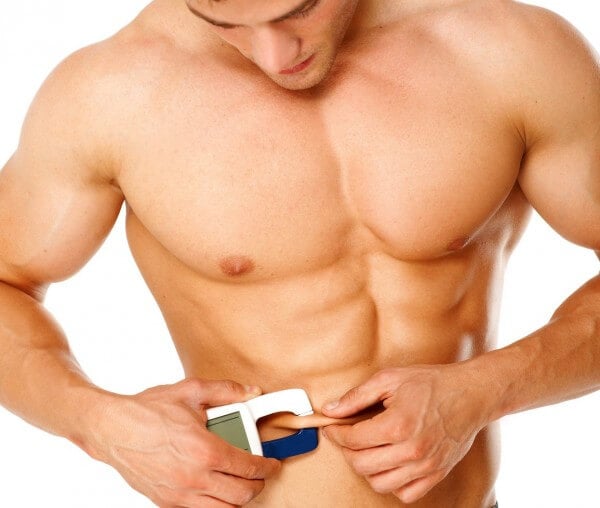
Now that you know the most common causes for bloating, let’s talk about how to reduce or even eliminate it.
Stop Drinking Carbonated Beverages
If you’re having problems with a swollen, gassy stomach, then you don’t want to drink gas-infused liquids.
I don’t think this needs much more explanation.
Make Sure You’re Not Constipated
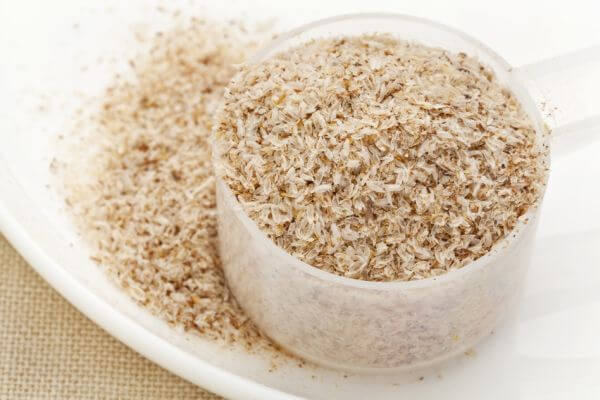
Constipation is known to exacerbate symptoms of stomach bloating and it has several possible causes.
The one people most commonly believe is inadequate fiber intake, but research shows this isn’t the case. In fact, increasing fiber intake can make the bloating worse and reducing intake can help alleviate constipation.
Laxatives work, of course, but exercise and supplementation with magnesium are two reliable ways to get your bowels moving as well.
Balance Your Sodium and Potassium Levels
As you know, large fluctuations in sodium intake can cause bloating and water retention. Inadequate potassium intake can do the same.
The key is maintaining a stable intake and proper balance of both sodium and potassium.
Again, I like to stick with the Institute of Medicine’s recommendations, which is 1.5 to 2.3 grams of sodium and 4.7 grams of potassium per day.
(These numbers increase if you sweat a fair amount every day, which us fitness folk do. Personally I get about 3 to 4 grams of sodium and about 5 to 6 grams of potassium per day.)
Take stock of your daily sodium intake and if you’re like most people and it’s too high, here are some simple ways to reduce it:
- Don’t eat canned or pre-packaged foods
- Ditch the deli meat
- Don’t eat processed meats like bologna and hot dogs
- Limit your use of table salt and spices
- Check the labels of any sauces and salad dressings
And yes, I know it’s kind of annoying to count/track yet another thing in your diet but it’s worth the hassle if you’re struggling with bloating.
Reduce Your Cortisol Levels

If you’ve been in a calorie deficit for some time…
…if you’re doing way too much exercise every week…
…or if you’re dealing with large amounts of physical or mental stress…
…there’s a good chance your cortisol levels are too high.
Fortunately, reducing cortisol levels is pretty easy.
- Create and follow a daily relaxation routine.
- Get off that crappy low-carb diet.
- Enjoy a refeed day or increase food intake for a few days.
- Do a deload week in the gym.
- Get plenty of sleep.
Don’t Bother With (Purported) Natural Diuretics
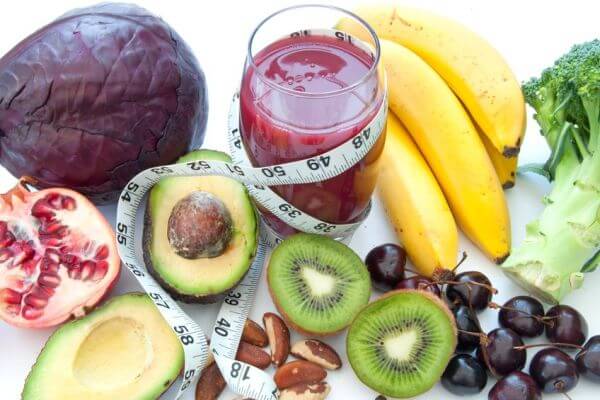
A quick Google search for “foods to reduce bloat” will serve up a long list of self-styled health and diet gurus banging on about how this or that food will give you a flat, sexy belly.
The most common foods recommended include asparagus, celery, leafy greens, bananas, olive oil, and various high-fiber foods.
Unfortunately, I’ve yet to see any valid scientific proof that any food can reliably reduce bloating.
Sure, bananas contain a good amount of potassium and can help in that regard, but it’s not the banana per se that’s helping–it’s the potassium.
Alcohol is known to have diuretic effects but drinking regularly isn’t going to help you in the long run. Caffeine has a milder diuretic effect but research shows the fluid ingested with the caffeine more than makes up for any water loss.
The bottom line is there are no foods or natural supplements that you can eat or take that will noticeably reduce water retention.
Stop Eating Foods Known to Cause Gastrointestinal Problems
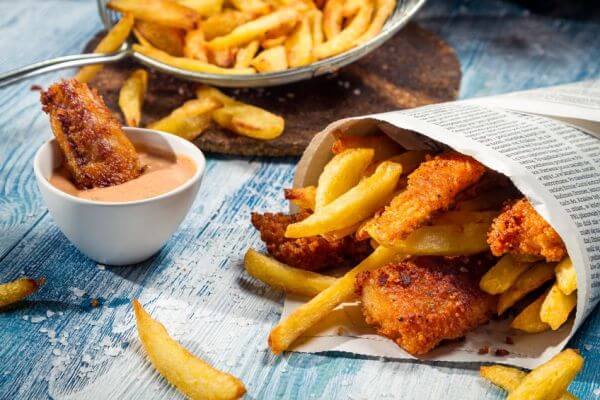
If the five strategies above don’t work for you, this is the next step.
It’s not particularly fun but it’s not hard or grueling either. And don’t worry, I’m not going to tell you to swear off everything but “clean” foods.
You should, however, eliminate foods commonly known to cause indigestion and bloating and see if your situation improves. And as you know, the two primary culprits are dairy (due to the lactose) and FODMAPs (due to their indigestibility).
Here’s a handy list of the foods you should eliminate from your diet (you can find a more extensive list here):
- Grains like wheat, barley, and rye
- Beans
- Dairy
- Onion
- Garlic
- Artichoke
- Asparagus
- Broccoli
- Brussels sprout
- Cabbage
- Chocolate
- Apple
- Apricot
- Avocado
- Blackberry
- Cherry
- Nectarine
- Peach
- Pear
- Plum
- Prune
- Watermelon
- Cauliflower
- Mushroom
- Sugar alcohols like xylitol, sorbitol and mannitol
I know…that’s long, sucky list but it’s only temporary and the good news is this:
If you eliminate those foods and your bloating noticeably improves, you don’t necessarily have to leave them off your plate for good.
Instead, you can take a food intolerance approach and start introducing them back one by one (“challenges”) while keeping a food diary. You may find that it’s only a handful of foods that trigger the bloating.
Here’s an in-depth guide on how to do it correctly.
The Bottom Line on Bloating
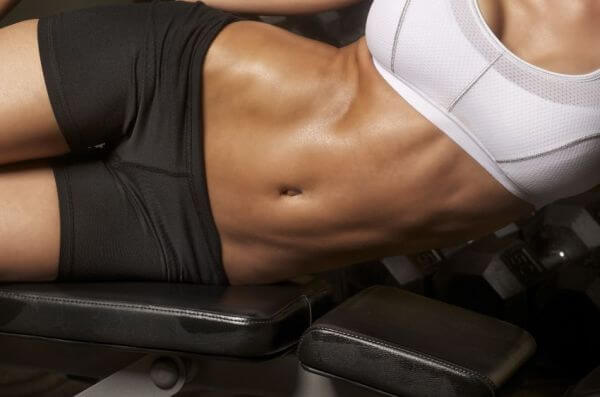
Stomach bloating, and bloating in general, can be horribly frustrating. Especially if you know what you’re doing with your diet and training and are trying to maintain a lean, muscular physique.
Use the strategies in this article and chances are very good that you’ll get that flat belly and thin skin you’ve always wanted.
What do you think about bloating? Have anything else to share? Let me know in the comments below!
Scientific References +
- Maughan RJ, Griffin J. Caffeine ingestion and fluid balance: A review. J Hum Nutr Diet. 2003;16(6):411-420. doi:10.1046/j.1365-277X.2003.00477.x
- Taivainen H, Laitinen K, Tähtelä R, Kilanmaa K, Välimäki MJ. Role of plasma vasopressin in changes of water balance accompanying acute alcohol intoxication. Alcohol Clin Exp Res. 1995;19(3):759-762. doi:10.1111/j.1530-0277.1995.tb01579.x
- Gallen IW, Rosa RM, Esparaz DY, et al. On the mechanism of the effects of potassium restriction on blood pressure and renal sodium retention. Am J Kidney Dis. 1998;31(1):19-27. doi:10.1053/ajkd.1998.v31.pm9428447
- Schiller LR. Review article: the therapy of constipation. Aliment Pharmacol Ther. 2001;15(6):749-763. doi:10.1046/j.1365-2036.2001.00982.x
- Ho KS, Tan CYM, Daud MAM, Seow-Choen F. Stopping or reducing dietary fiber intake reduces constipation and its associated symptoms. World J Gastroenterol. 2012;18(33):4593-4596. doi:10.3748/wjg.v18.i33.4593
- Gonlachanvit S, Coleski R, Owyang C, Hasler W. Inhibitory actions of a high fibre diet on intestinal gas transit in healthy volunteers. Gut. 2004;53(11):1577-1582. doi:10.1136/gut.2004.041632
- Ho KS, Tan CYM, Daud MAM, Seow-Choen F. Stopping or reducing dietary fiber intake reduces constipation and its associated symptoms. World J Gastroenterol. 2012;18(33):4593-4596. doi:10.3748/wjg.v18.i33.4593
- Agrawal A, Houghton LA, Reilly B, Morris J, Whorwell PJ. Bloating and distension in irritable bowel syndrome: the role of gastrointestinal transit. Am J Gastroenterol. 2009;104(8):1998-2004. doi:10.1038/ajg.2009.251
- Whitworth JA, Mangos GJ, Kelly JJ. Cushing, cortisol, and cardiovascular disease. Hypertens (Dallas, Tex 1979). 2000;36(5):912-916. doi:10.1161/01.hyp.36.5.912
- Lawson EA, Donoho D, Miller KK, et al. Hypercortisolemia is associated with severity of bone loss and depression in hypothalamic amenorrhea and anorexia nervosa. J Clin Endocrinol Metab. 2009;94(12):4710-4716. doi:10.1210/jc.2009-1046
- Dietary Reference Intakes for Water, Potassium, Sodium, Chloride, and Sulfate. National Academies Press; 2005. doi:10.17226/10925
- Heer M, Frings-Meuthen P, Titze J, et al. Increasing sodium intake from a previous low or high intake affects water. Br J Nutr. 2009;101(9):1286-1294. doi:S0007114508088041 [pii]\r10.1017/S0007114508088041
- Nijeboer P, Bontkes HJ, Mulder CJJ, Bouma G. Non-celiac gluten sensitivity. Is it in the gluten or the grain? J Gastrointest Liver Dis. 2013;22(4):435-440. https://www.ncbi.nlm.nih.gov/pubmed/24369326. Accessed October 24, 2019.
- Lomer MCE, Parkes GC, Sanderson JD. Review article: lactose intolerance in clinical practice--myths and realities. Aliment Pharmacol Ther. 2008;27(2):93-103. doi:10.1111/j.1365-2036.2007.03557.x










